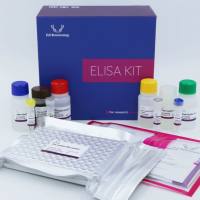Using Progenitor Cells and Gene Chips to Define Genetic Pathways
互联网
互联网
相关产品推荐

Human CGRP2(Calcitonin Gene Related Peptide 2) ELISA Kit
¥1680

chp/chp蛋白Recombinant S_t_a_phylococcus a_u_r_eus Chemotaxis inhibitory protein (chp)重组蛋白(CHIPS)蛋白
¥2328

MKN45人低分化胃癌细胞|MKN45细胞(Human Poorly Differentiated Gastric Cancer Cells)
¥1500

Recombinant-Saccharomyces-cerevisiae-Genetic-interactor-of-prohibitin-7-mitochondrialGEP7Genetic interactor of prohibitin 7, mitochondrial
¥11116

T4 Gene 32 Protein (ssDNA结合蛋白),不含DNA内切酶和外切酶,不含核糖核酸酶及磷酸酶。,阿拉丁
¥308.90
相关问答

